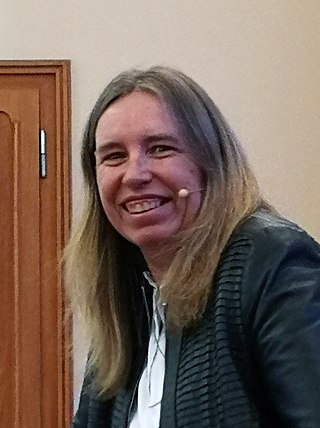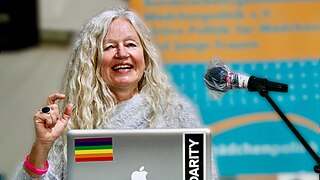
Technische Universität Berlin is a public research university located in Berlin, Germany. It was the first German university to adopt the name "Technische Universität".

The University of Graz is a public research university located in Graz, Austria. It is the largest and oldest university in Styria, as well as the second-largest and second-oldest university in Austria. The university is associated with numerous Nobel prize laureates and is highly regarded.

Graz University of Technology is a public research university located in Styria, Austria. It was founded in 1811 by Archduke John of Austria and is the oldest science and technology research and educational institute in Austria. It currently comprises seven faculties and is a public university. It offers 19 bachelor's and 36 master's study programmes across all technology and natural sciences disciplines. Doctoral training is organised in 14 English-speaking doctoral schools. The university has more than 17,000 students, and around 1,900 students graduate every year. The Graz University of Technology and the University of Graz co-operate in teaching and research of natural sciences.

The Vienna University of Technology is a public research university in Vienna, Austria.
Sandra G. Harding is an American philosopher of feminist and postcolonial theory, epistemology, research methodology, and philosophy of science. She directed the UCLA Center for the Study of Women from 1996 to 2000, and co-edited Signs: Journal of Women in Culture and Society from 2000 to 2005. She is currently a Distinguished Professor Emeritus of Education and Gender Studies at UCLA and a Distinguished Affiliate Professor of Philosophy at Michigan State University. In 2013 she was awarded the John Desmond Bernal Prize by the Society for the Social Studies of Science (4S).

The Technische Universität Darmstadt, commonly known as TU Darmstadt, is a research university in the city of Darmstadt, Germany. It was founded in 1877 and received the right to award doctorates in 1899. In 1882, it was the first university in the world to set up a chair in electrical engineering. In 1883, the university founded the first faculty of electrical engineering and introduced the world's first degree course in electrical engineering. In 2004, it became the first German university to be declared as an autonomous university. TU Darmstadt has assumed a pioneering role in Germany. Computer science, electrical engineering, artificial intelligence, mechatronics, business informatics, political science and many more courses were introduced as scientific disciplines in Germany by Darmstadt faculty.

The Technical University of Braunschweig, commonly referred to as TU Braunschweig, is the oldest Technische Universität in Germany. It was founded in 1745 as Collegium Carolinum and is a member of TU9, an incorporated society of the most renowned and largest German institutes of technology. It is commonly ranked among the top universities for engineering in Germany. TU Braunschweig's research profile is very interdisciplinary, but with a focus on aeronautics, vehicle engineering including autonomous driving and electric mobility, manufacturing, life sciences, and metrology. Research is conducted in close collaboration with external organizations such as the German Aerospace Center (DLR), Helmholtz Centre for Infection Research, several Fraunhofer Institutes, and Germany's national metrology institute (PTB), among many others. As one of very few research institutions of its type in the world, the university has its own research airport.

The Gottfried Wilhelm Leibniz Prize, or Leibniz Prize, is awarded by the German Research Foundation to "exceptional scientists and academics for their outstanding achievements in the field of research". Since 1986, up to ten prizes have been awarded annually to individuals or research groups working at a research institution in Germany or at a German research institution abroad. It is considered the most important research award in Germany.

Londa Schiebinger is the John L. Hinds Professor of History of Science, Department of History, and by courtesy the d-school, Stanford University. She received her Ph.D. from Harvard University in 1984. An international authority on the theory, practice, and history of gender and intersectionality in science, technology, and medicine, she is the founding Director of Gendered Innovations in Science, Medicine, Engineering, and Environment. She is an elected member of the American Academy of Arts and Sciences. Schiebinger received honorary doctorates from the Vrije Universiteit Brussel, Belgium (2013), from the Faculty of Science, Lund University, Sweden (2017), and from Universitat de València, Spain (2018). She was the first woman in the field of History to win the prestigious Alexander von Humboldt Research Prize in 1999.

Roland Rainer was an Austrian architect.
Martina Löw is a German sociologist.

Leonhard Wolfgang Bibel is a German computer scientist, mathematician and Professor emeritus at the Department of Computer Science of the Technische Universität Darmstadt. He was one of the founders of the research area of artificial intelligence in Germany and Europe and has been named as one of the ten most important researchers in German artificial intelligence history by the Gesellschaft für Informatik. Bibel established the necessary institutions, conferences and scientific journals and promoted the necessary research programs to establish the field of artificial intelligence.

The European Master's Program in Computational Logic (EMCL) was a two years joint MSc programme offering a joint degree between four European universities as a part of the Erasmus Mundus co-operation and mobility programme. So far, this programme had more than 130 students.
The Bio-economy Research and Technology Council advises the government of Germany on measures to promote the bioeconomy in Germany. The Council makes policy recommendations to policy makers, science and industry in the corresponding fields of research and action. The members of the Council are respected senior figures drawn from across the fields of science.

Anja Feldmann is a German computer scientist.

Ruth Hagengruber is a German philosopher, currently professor and head of philosophy at the University of Paderborn. She specialises in the history of women philosophers as well as philosophy of economics and computer science and is a specialist on Émilie Du Châtelet. Hagengruber is the director of the Center for the History of Women Philosophers and Scientists and founder of the research area EcoTechGender. She invented the Libori Summer School and is the creator of the Encyclopedia of Concise Concepts by Women Philosophers, for which she holds the position of editor in chief together with Mary Ellen Waithe.

The Department of Computer Science is a department of the Technische Universität Darmstadt. With a total of 36 professorships and about 3,700 students in 12 study courses, the Department of Computer Science is the largest department of the university. The department shapes the two research profile areas "Cybersecurity (CYSEC)" and "Internet and Digitization (InDi)" of the university.

Thorsten O. Zander is a German scientist who introduced the concept of passive brain-computer interface. He co-founded Zander Labs, a German-Dutch company in the field of passive brain computer interface (pBCI) and neuro-adaptive technology (NAT).

Jutta Hartmann is a German academic and professor of pedagogy and social work at Alice Salomon University of Applied Sciences Berlin. Her research interests include Gender, Queer, Diversity education and Educational science.
Örs Legeza is a Hungarian theoretical physicist and awarded as a Hans Fischer Senior Fellow 2021 at the Technical University of Munich's Institute for Advanced Study . Örs Legeza and Andor Menczer recently set a new quantuum calculating speed record for computers with their software based on tensor networks.















